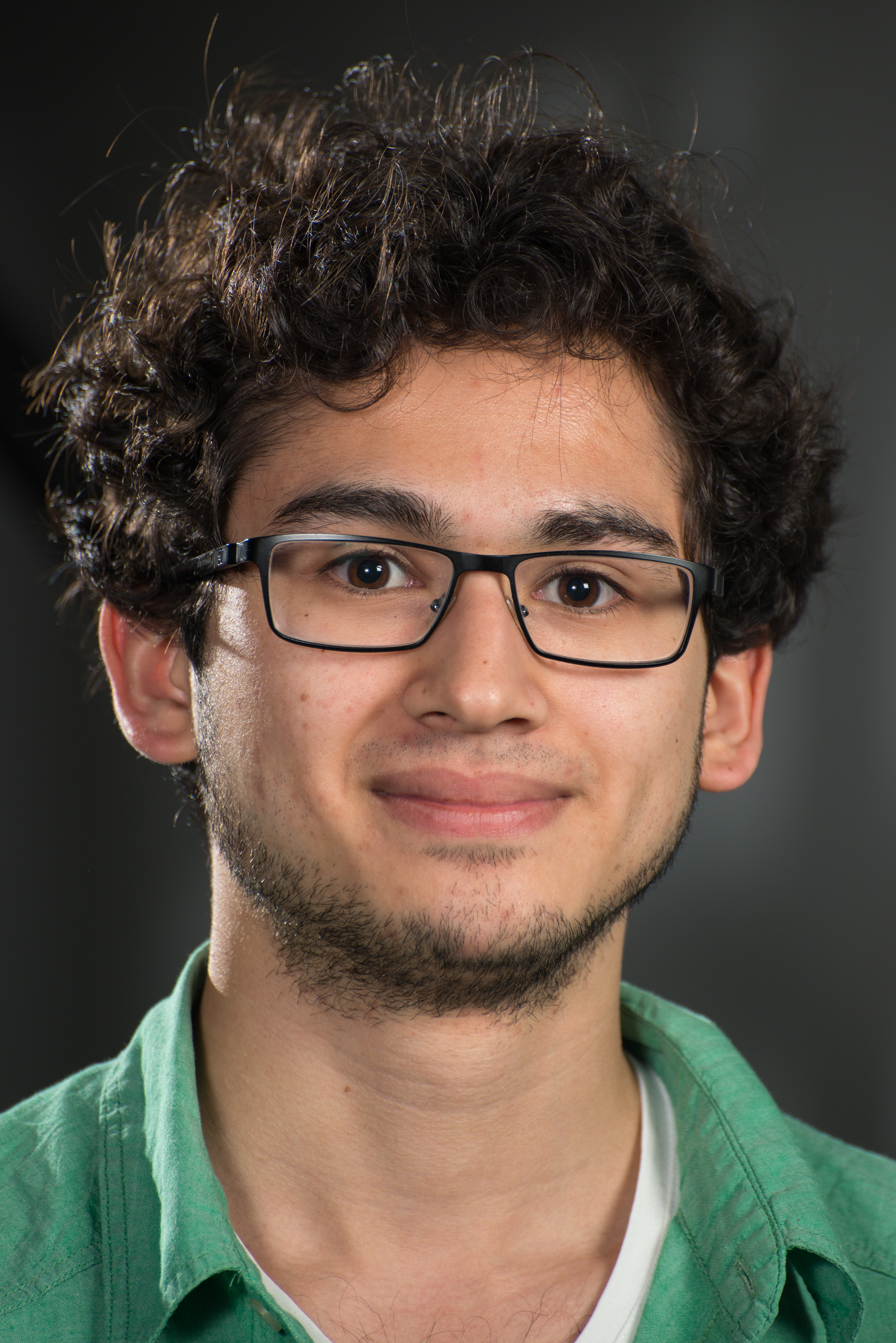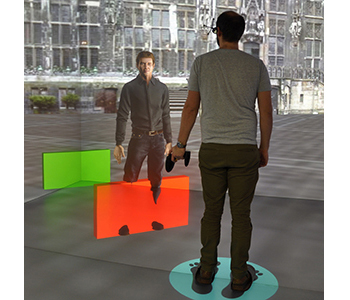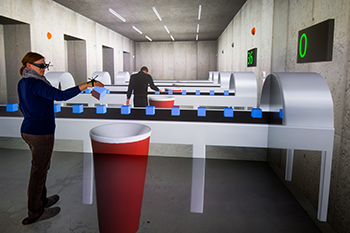Profile

|
Heiko Overath, B. Sc. |
Publications
Social VR: How Personal Space is Affected by Virtual Agents’ Emotions

Personal space (PS), the flexible protective zone maintained around oneself, is a key element of everyday social interactions. It, e.g., affects people's interpersonal distance and is thus largely involved when navigating through social environments. However, the PS is regulated dynamically, its size depends on numerous social and personal characteristics and its violation evokes different levels of discomfort and physiological arousal. Thus, gaining more insight into this phenomenon is important.
We contribute to the PS investigations by presenting the results of a controlled experiment in a CAVE, focusing on German males in the age of 18 to 30 years. The PS preferences of 27 participants have been sampled while they were approached by either a single embodied, computer-controlled virtual agent (VA) or by a group of three VAs. In order to investigate the influence of a VA's emotions, we altered their facial expression between angry and happy. Our results indicate that the emotion as well as the number of VAs approaching influence the PS: larger distances are chosen to angry VAs compared to happy ones; single VAs are allowed closer compared to the group. Thus, our study is a foundation for social and behavioral studies investigating PS preferences.
@InProceedings{Boensch2018c,
author = {Andrea B\"{o}nsch and Sina Radke and Heiko Overath and Laura M. Asch\'{e} and Jonathan Wendt and Tom Vierjahn and Ute Habel and Torsten W. Kuhlen},
title = {{Social VR: How Personal Space is Affected by Virtual Agents’ Emotions}},
booktitle = {Proceedings of the IEEE Conference on Virtual Reality and 3D User Interfaces (VR) 2018},
year = {2018}
}
Talk: Influence of Emotions on Personal Space Preferences
Personal Space (PS) is regulated dynamically by choosing an appropriate interpersonal distance when navigating through social environments. This key element in social interactions is influenced by numerous social and personal characteristics, e.g., the nature of the relationship between the interaction partners and the other’s sex and age. Moreover, affective contexts and expressions of interaction partners influence PS preferences, evident, e.g., in larger distances to others in threatening situations or when confronted with angry-looking individuals. Given the prominent role of emotional expressions in our everyday social interactions, we investigate how emotions affect PS adaptions.
Poster: Peers At Work: Economic Real-Effort Experiments In The Presence of Virtual Co-Workers

Traditionally, experimental economics uses controlled and incentivized field and lab experiments to analyze economic behavior. However, investigating peer effects in the classic settings is challenging due to the reflection problem: Who is influencing whom?
To overcome this, we enlarge the methodological toolbox of these experiments by means of Virtual Reality. After introducing and validating a real-effort sorting task, we embed a virtual agent as peer of a human subject, who independently performs an identical sorting task. We conducted two experiments investigating (a) the subject’s productivity adjustment due to peer effects and (b) the incentive effects on competition. Our results indicate a great potential for Virtual-Reality-based economic experiments.
@InProceedings{Boensch2017a,
Title = {Peers At Work: Economic Real-Effort Experiments In The Presence of Virtual Co-Workers},
Author = {Andrea B\"{o}nsch and Jonathan Wendt and Heiko Overath and Özgür Gürerk and Christine Harbring and Christian Grund and Thomas Kittsteiner and Torsten W. Kuhlen},
Booktitle = {IEEE Virtual Reality Conference Poster Proceedings},
Year = {2017},
Pages = {301-302},
DOI = {10.1109/VR.2017.7892296}
}
Do Not Invade: A Virtual-Reality-Framework to Study Personal Space
The bachelor thesis’ aim was to develop a framework allowing to design and conduct virtual-reality-based user studies gaining insight into the concept of personal space.
@Article{Schnathmeier2017,
Title = {Do Not Invade: A Virtual-Reality-Framework to Study Personal Space},
Author = {Jan Schnathmeier and Heiko Overath and Sina Radke and Andrea B\"{o}nsch and Ute Habel and Torsten W. Kuhlen},
Journal = {{V}irtuelle und {E}rweiterte {R}ealit\"at, 14. {W}orkshop der {GI}-{F}achgruppe {VR}/{AR}},
Year = {2017},
Pages = {203-204},
ISBN = {978-3-8440-5606-8}
Publisher = {Shaker Verlag}
}

